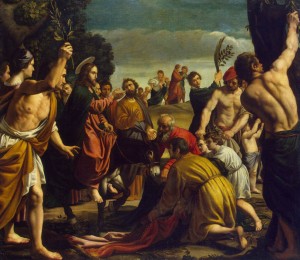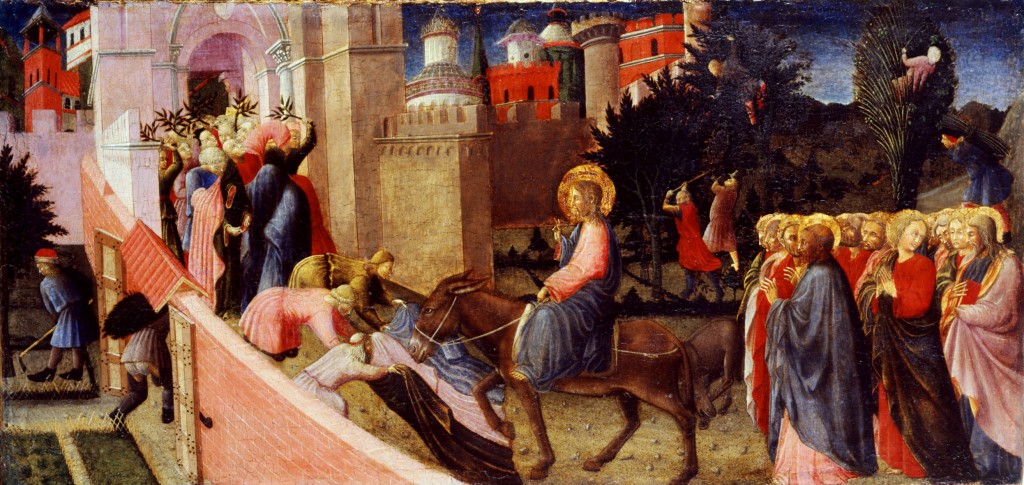Liturgy of the Palms | Luke 19:28-40
A Borrowed Donkey
The story is that Solomon rode a donkey on his way to become king. People are forever comparing Jesus to him, pointing out that kings rode burros, that Jesus entered Jerusalem in a kingly procession, and all of that is true, so far as it goes. We may be sure of one thing: Solomon never had to borrow a donkey.
The path ahead of Jesus was strewn with the robes of common folk and whatever else they had at hand, palm branches and the like. They were poor, and they could have used some deliverance. As Alan Culpepper wrote, “Jesus was a king, but no ordinary one—the king of fishermen, tax collectors, Samaritans, harlots, blind men, demoniacs, and cripples.”¹
 A raggedy, raucous, tumultuous crowd, and a borrowed donkey—it was a spectacle. Some of the better folk urged Jesus to calm the multitudes, but he answered that were the crowd silenced even the stones would start shouting. There’s an image. No doubt his answer did nothing to endear him in the hearts of the religious folk.
A raggedy, raucous, tumultuous crowd, and a borrowed donkey—it was a spectacle. Some of the better folk urged Jesus to calm the multitudes, but he answered that were the crowd silenced even the stones would start shouting. There’s an image. No doubt his answer did nothing to endear him in the hearts of the religious folk.
Is it surprising that religious people wanted the procession quieted? The people who were following Jesus believed in him, believed in the things they had seen him do, believed that they needed a new king to get rid of Caesar, but they were not the religious establishment. They were the fringe, the outsiders, the odd folk Jesus drew to himself over and over. They were the sort of people who make churchgoers nervous.
The religious leaders had told everyone what the messiah would be like, and none of what they taught from their reading of scripture said anything about this man riding into Jerusalem on a borrowed donkey.
All that learning and study and preparation, and God surprised them. They had read the same scriptures that early Christians used to portray Jesus as messiah, and they still expected something different. This man could not be the messiah, could he?
They didn’t miss the signs because they were bad people. They missed the signs because they had traded their sense of wonder for forms of worship, had begun to believe their own ideas about what God is doing instead of believing God is doing something.
We are no better. Some of us think God does nothing, not anymore, and maybe never did. Others are so fervently and devoutly lost in our own expectations that we would not recognize God riding up to us on a borrowed donkey. We’d probably miss the shouting rocks, too, or tell them to hush while we closed our eyes to pray.
We should keep our eyes open. After all, God has better things to do than listen to long prayers. Anyone who’s ever ridden a donkey knows that much.
_____
¹ R. Alan Culpepper, “The Gospel of Luke,” in The New Interpreter’s Bible, ed. Leander Keck et al (Nashville: Abingdon Press, 1995), 370.


